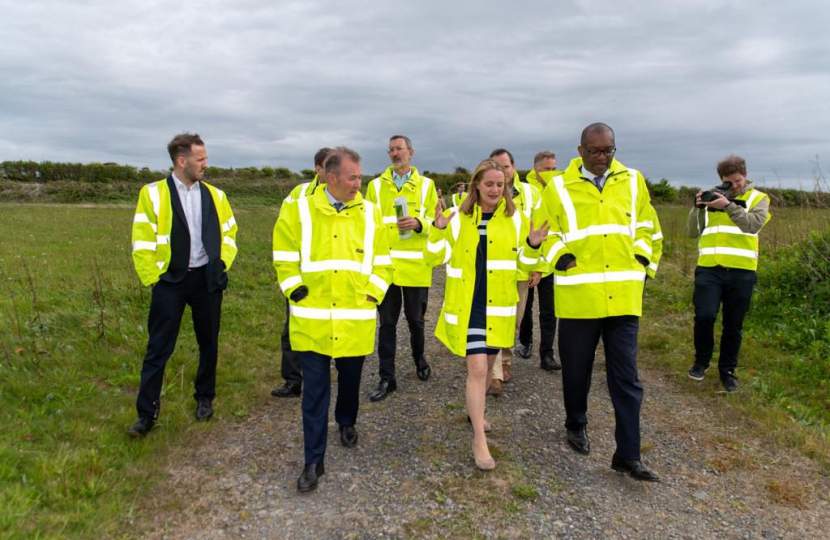
Nuclear power has a key role alongside renewables in the UK’s clean energy transition through supporting both reliable, low-carbon electricity generation and the future production of hydrogen.
With the lowest lifecycle carbon footprint of all the energy sources, the Government has committed to continuing its development of large and small scale reactors. This has been outlined in several key policy documents, including the 2020 Energy White Paper, the National Infrastructure Strategy, the Prime Minister’s 10 Point Plan for an Industrial Revolution, and most recently the Net Zero Strategy.
My constituency of Ynys Môn (Anglesey), also known as “Energy Island”, is well placed to become a hub for nuclear and other low-carbon energy generation, given its location and skills base, both here and across the wider region. It is particularly encouraging therefore that the Government has shown clear support for the continuation – and expansion – of the nuclear industry in the United Kingdom.
I chair the Nuclear Development Group (NDG) and All Party Parliamentary Group (APPG) on Small Modular Reactors (SMRs), which look to support the deployment of all three “classes” of nuclear – SMR, AMR and large scale and to work with Government and industry on how best to accelerate such a deployment.
Nuclear is one of the largest sources of clean energy used today and will continue to play a critical role in providing clean and affordable electricity. In the future, nuclear will contribute to decarbonisation through heat and hydrogen production, as well as continuing the production of low-carbon, reliable electricity through large, small (SMR) and advanced reactors (AMR). The use of modular manufacturing and changes to nuclear financing will make reactors easier to deploy in pursuit of our net zero goals.
Furthermore, the high temperatures produced by Advanced Modular Reactors (AMRs) could be used directly for Foundation Industries that require continuous and intense heat, whilst the output can also be used in the production of synthetic fuels, such as those being developed for low-emissions aircraft. The Government is taking steps now in order to support the development of small-scale nuclear so that it will play a key role in delivering Net Zero by 2050.
To ensure that the UK can harness this potential, it is imperative that the civil nuclear industry retains its talent and nurtures the next generation. Through apprenticeships, graduate scheme opportunities and the 60,000 highly skilled workers already employed in nuclear, the industry is investing in the skills and development of its workforce right across the UK.
Not all roles mean you need to have a PhD in nuclear physics! The nuclear sector offers a range of apprenticeships as well as graduate positions which can build the skills base ready for new build projects and work across the nuclear fuel cycle in both the civilian and defence fields. Careers are not just limited to technical and engineering roles either, with demand across roles in legal, finance, marketing, and communications, to name but a few.
The age profile in nuclear, like many technical fields, is skewed to the right and can provide large numbers of well-paid jobs across the nuclear supply chain to school, college and university leavers. New nuclear power plants can expect to operate for 60-80 years followed by 15-20 years of decommissioning, providing employment for generations of families, both directly within the facility and indirectly in the wider supply chain. This economic benefit spills into multiple sectors, from the local tax revenue to the provision of services to employees and supply chain partners from haircuts to healthcare.
If we are to meet our climate change commitment, the UK urgently needs to replace and build more nuclear power plants. New nuclear can bring major economic, social and environmental benefits for Ynys Môn and the UK. I remain very hopeful that by working with Government and organisations across the nuclear supply chain, we can see nuclear investment come to Ynys Môn and the wider economy, levelling up areas that have been forgotten and advancing the decarbonisation agenda.


